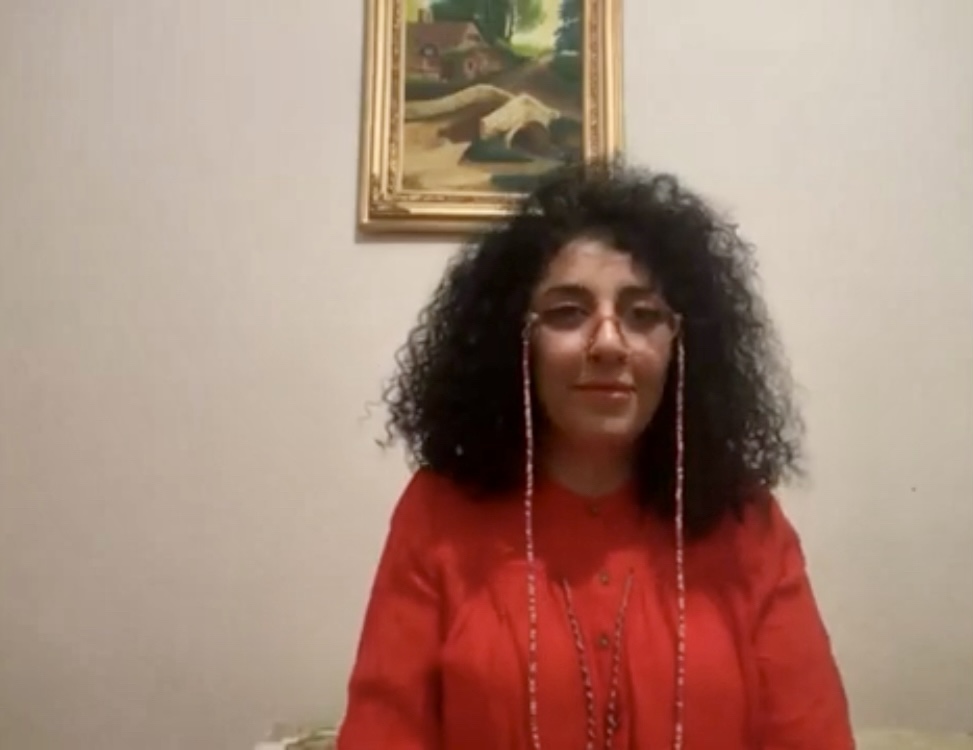
Narges Mohammadi, a prominent women’s rights activist in Iran, has won the Nobel Peace Prize. She received the news while behind bars.
The 51-year-old has been imprisoned since 2021, after attending a memorial for a person killed in nationwide protests of rising gasoline prices. This is not her first time in jail – she was first arrested in 1998 for her criticism of Iran’s theocratic government and has since been imprisoned 13 times and convicted five. In total, she’s been sentenced to 31 years in prison.
However, her imprisonment has only fueled her activism, as she’s used inside knowledge to write reports detailing physical and sexual abuse of incarcerated women. In 2022, she wrote a book called “White Torture” that uses interviews with 12 other Iranian women prisoners to make a case against extended solitary confinement, calling it a “severe violation of human rights.” Her writings on the treatment of incarcerated women became a central component of nationwide, women-led protests following the death of 22-year-old Mahsa Amini in the custody of morality police.
Currently, Mohammadi is being held at Evin Prison in Tehran – notorious for holding political prisoners. In a statement released after the Nobel Prize announcement, she said the recogniton “will make me more resilient, determined, hopeful and enthusiastic on this path, and it will accelerate my pace.”
Mohammadi began her activism as a student at Imam Khomeini International University, where she wrote articles on women’s rights for the student newspaper. Although she was active in a mountain climbing club, she was eventually banned from joining climbs, due to her political activism. She became an engineer after graduation, but continued to write for reformist newspapers. She joined the now-banned Defenders of Human Rights Center – founded by the only other Iranian woman to win the Nobel Peace Prize, Shirin Ebadi – and would later become the organization’s vice president.
Mohammadi is also the fifth person in the award’s 122-year history to be awarded the Nobel Peace Prize while in prison or under house arrest. Berit Reiss-Andersen, the chair of the committee in Norway that selected Mohammadi from a list of 350 nominees, urged Iran to release her in time for the prize ceremony on Dec. 10.
“This prize is first and foremost a recognition of the very important work of a whole movement in Iran with its undisputed leader, Narges Mohammadi,” Reiss-Andersen said in a statement.
As is customary for Nobel laureates, Mohammadi will receive a cash award of 11 million Swedish kronor (about $1 million), an 18-carat gold medal and a diploma. Reiss-Andersen said the Nobel committee hopes the award “is an encouragement to continue the work in whichever form this movement finds to be fitting.”
Mohammadi’s brother, Hamidreza Mohammadi, told The Associated Press that although the prize has brought global attention to the women’s rights movement in Iran, it will not have any effect on the government. “The regime will double down on the opposition,” he said. “They will just crush people.”
Still, Mohammadi is not discouraged. Despite spending many years of her life in prison, she made her stance clear in an opinion piece she wrote for The New York Times last year: “What the government may not understand is that the more of us they lock up, the stronger we become.”



